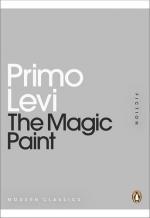|
This section contains 1,834 words (approx. 7 pages at 300 words per page) |

|
SOURCE: “Imagining a Life after the Unimaginable,” in New York Times, April 19, 1998, pp. 15-6.
In the following essay, Rosenbaum offers a positive assessment of the cinematic version of Levi's The Reawakening.
Take, one Italian chemist; add the sulfurous poison pellets of Zyklon B, the stench of rotting, skeletal corpses, and an entire periodic table of indifference; mix it all together in a flaming petri dish called Auschwitz, and you have a formula that could transform a man of science into a poet of atrocity.
That was the life of Primo Levi, who was best known for the classic literary account of his internment in a Nazi death camp. Survival in Auschwitz, which was published in 1947. After being liberated from the camp, Levi had eventually returned to his home in Turin, Italy, where he became a conscience of the nation, an icon of the international human rights movement and...
|
This section contains 1,834 words (approx. 7 pages at 300 words per page) |

|


